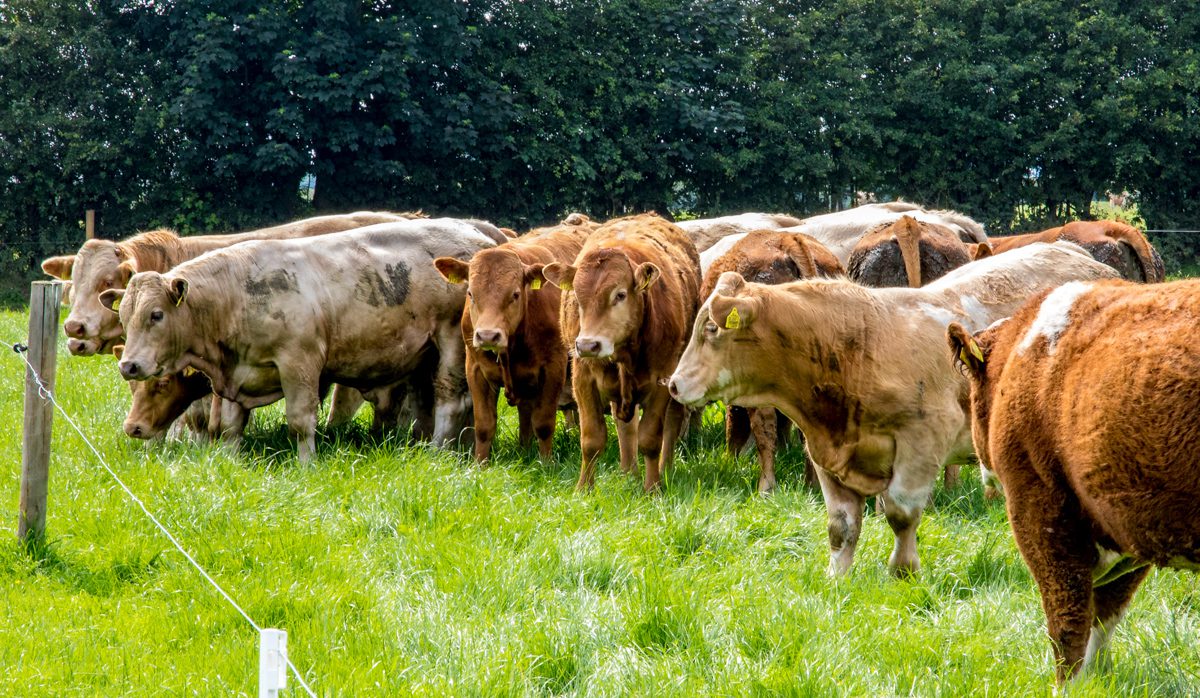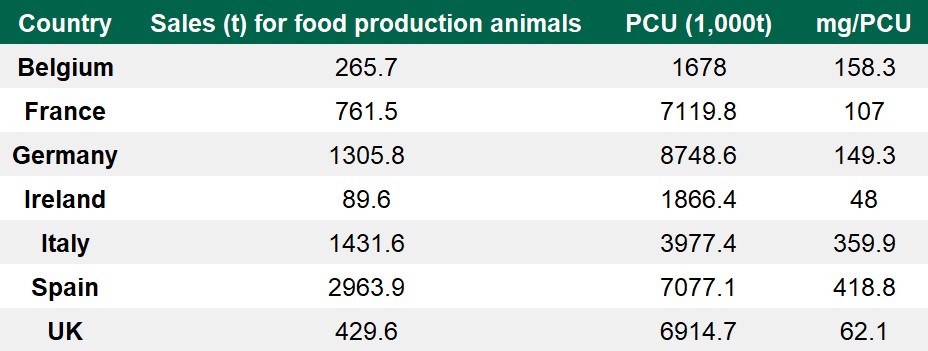A spring-calving herd and grass-fed animals appear to be the main reasons why Ireland has achieved the lowest level of antibiotic use in cattle in the EU.
This is the view of Pat O’Rourke who is the manager of the Edell Point Server – employed by Coop Italia – to validate GM-free and antibiotic-free animals that go to the Italian supermarket chain.
“Animal welfare takes precedence over everything; in France, for example, animals are inside where they are faced with higher temperatures. One of the prime reasons why there is a lower use of antibiotics in Ireland is because the animals are out,” he added.
This table shows the level of antibiotic use in cattle seen across EU countries.
O’Rourke – who is also a former chairman of the Livestock and Meat Commission for Northern Ireland (LMC) and president of the Irish Creamery Milk Suppliers’ Association (ICMSA) – went on to say that vaccination against disease in cattle was another contributory factor in the elimination of antibiotic use in animals.
“A direct comparison has been made between the increased use of vaccines and the lower requirement of antibiotics; this is good for the consumer because they are not eating meat that doesn’t have antibiotics and good news for the farmer because the animal never gets sick,” he continued.
He also stated that when an animal doesn’t get sick it performs better and there is more profit for the individual suckler farmer.
‘Ideal situation’
Meanwhile, the World Health Organisation (WHO) has highlighted the importance of ensuring that animals don’t get sick.
Where an animal has a clean bill of health WHO points to an “ideal situation” being achieved.
To ensure that this does happen, O’Rourke highlighted the importance of vaccination and its point of entry. He also highlighted how animal welfare takes precedence over everything else.
He continued: “Where there is vaccine use it builds up the immunity in that animal against the particular strain of infection; therefore, the animal never gets sick.
“If the animal doesn’t get sick it is a thriving animal and medically it has been determined that there is no side effects to the vaccine.
The vaccine triggers the animals immune system so that it is able to fight off that particular infection.
The retail manager went on to explain how a vaccine programme was in place in Ireland a number of years ago.
He also highlighted how grant aid was provided and a bonus paid out on the sale of the animal to those farmers who participated in the initiative.
“They found that animals being live exported straight from the suckler herd were very stressed where as those animals that were vaccinated and trained to eat meal – once it was taken off the cow – the animal wasn’t as stressed,” continued O’Rourke.
Igniting vaccine use
O’Rourke then called on the Department of Agriculture, Food and the Marine to reintroduce a vaccination scheme.
It’s hard to believe that with all the schemes that are going at the moment there are none geared towards encouraging the suckler farmer to vaccinate his cattle.
He continued: “I know from exporters and I know from finishers that they see huge advantages to animals that are vaccinated and their subsequent ability to perform.
“The antibiotic issue is becoming a market requirement on the basis that consumers now want to eat meat that hasn’t been treated with antibiotics.”

